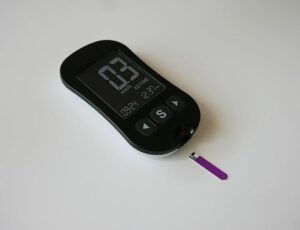Early detection is very important for curing diseases properly. Especially for children, it plays a crucial role in safeguarding their health and well-being. Finding health problems early helps doctors treat them sooner. This can reduce the impact of the problems and increase the chances of good outcomes. Here are some reasons why early detection is important for children’s health:
Preventive Care:
Early detection can help reduce potential health risks before they lead to a more serious problem. Regular check-ups and screenings help monitor a child’s growth and development. They also identify risk factors and allow for preventive measures like vaccinations, nutrition counseling, and lifestyle changes.
Treatment Efficacy:
Identifying health conditions early leads to better treatment results. Early intervention can stop diseases from getting worse, reduce complications, and make treatments work better. For issues like developmental delays, learning disabilities, or behavioral disorders, early detection allows for early services and therapies. This can greatly improve outcomes and quality of life.
Developmental Milestones:
Early detection of developmental delays or disorders allows for timely intervention and support to help children reach their full potential. Monitoring developmental milestones and addressing delays early on can prevent long-term consequences and promote optimal physical, cognitive, social, and emotional development.
Prevent Complications:
Certain health conditions, if left untreated, can lead to complications that may have long-term consequences for a child’s health and well-being. Early detection enables healthcare providers to identify and address these conditions before they cause significant harm. For example, early detection of vision problems can prevent permanent vision loss, while early diagnosis of chronic diseases such as diabetes or asthma can help manage symptoms and prevent complications.
Promote Healthy Habits:
Early detection provides an opportunity to educate children and their families about healthy lifestyle behaviors and preventive health practices. By identifying risk factors or unhealthy habits early on, healthcare providers can offer guidance on nutrition, physical activity, sleep hygiene, and other lifestyle factors that promote optimal health and prevent future health problems.
Reduce Healthcare Costs:
Early detection and intervention can lead to cost savings by preventing the need for more extensive and costly treatments or hospitalizations later on. By addressing health issues early, healthcare resources can be utilized more efficiently, reducing the burden on families, healthcare systems, and society as a whole.
Emotional Support:
Early detection of health concerns allows families to access the support and resources they need to cope with and navigate the challenges associated with their child’s condition. Early intervention services, support groups, and counseling can provide emotional support, guidance, and empowerment to families facing health-related challenges.
In conclusion, early detection is essential for promoting the health, well-being, and development of children. By identifying health concerns early and implementing timely interventions, healthcare providers can prevent complications, maximize treatment efficacy, and support children in reaching their full potential. Investing in early detection and preventive care is crucial for ensuring the long-term health and vitality of future generations.




